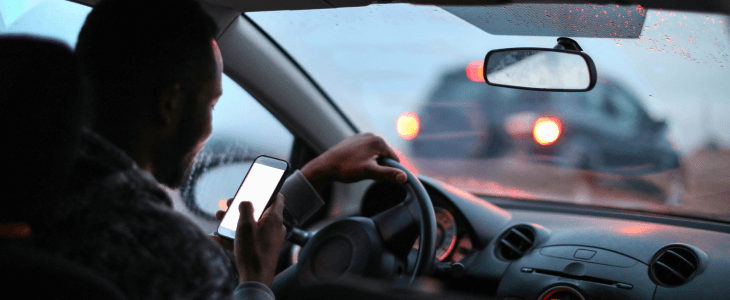
Reckless Driving
Reckless driving is a serious traffic offense involving operating a vehicle with a willful disregard for the safety of others. This offense typically includes actions that endanger lives, property, or public safety, such as excessive speeding, aggressive driving, or ignoring traffic signals. Reckless driving is often classified as a misdemeanor and can carry severe penalties, including fines, license suspension, increased insurance premiums, and even jail time. At 770GoodLaw, we help clients understand the legal consequences of reckless driving charges and provide skilled defense to protect their rights and driving privileges.
Definition and Examples of Reckless Driving
Reckless driving generally refers to driving behaviors that display a blatant disregard for safety and can vary by state law. Common examples of reckless driving include:
-
Excessive Speeding: Driving well above the speed limit, especially in areas with high pedestrian traffic or near schools.
-
Aggressive Lane Changes: Swerving between lanes without signaling or respect for other vehicles.
-
Tailgating: Following other vehicles too closely, especially at high speeds, which limits reaction time in emergencies.
-
Ignoring Traffic Signals: Running red lights, stop signs, or disregarding other traffic control devices.
-
Street Racing: Participating in illegal racing or speed contests on public roads.
Consequences of a Reckless Driving Charge
Reckless driving is often treated as a criminal offense, with penalties that can have lasting effects on a person’s driving record, financial stability, and future opportunities. Key consequences include:
-
Fines and Court Costs: Fines for reckless driving can range from hundreds to thousands of dollars, depending on the state and severity of the offense.
-
Jail Time: In some cases, reckless driving can lead to short-term jail sentences, especially for repeat offenders or severe cases.
-
License Suspension: Many states impose license suspensions for reckless driving, with suspension periods ranging from a few months to a year.
-
Points on Driving Record: Reckless driving adds points to a driver’s record, potentially leading to further penalties or license suspension with accumulated points.
-
Increased Insurance Premiums: Insurance companies often view reckless driving as high-risk behavior, leading to significant increases in premiums.
Defenses Against Reckless Driving Charges
While reckless driving charges are serious, drivers have legal defenses available that can help reduce or dismiss the charges. Common defenses for reckless driving include:
- Challenging Evidence: An attorney may challenge the validity of the evidence, such as radar gun accuracy or officer observations, if they appear unreliable.
- Lack of Intent: Reckless driving often requires proof of willful disregard. Demonstrating that the driver’s actions were unintentional or due to external factors (e.g., mechanical failure) can serve as a defense.
- Reducing Charges: In some cases, reckless driving charges can be negotiated down to a lesser offense, such as careless driving, which carries less severe penalties.
- Questioning Witness Testimony: If witness statements contributed to the charge, cross-examining witnesses may reveal inconsistencies that benefit the defendant’s case.
How a Reckless Driving Conviction Affects Future Opportunities
A reckless driving conviction can have long-term effects beyond fines and license points. It can impact employment, insurance rates, and personal reputation. Important considerations include:
-
Employment Challenges: Some employers may view reckless driving convictions as a liability, especially for jobs that involve driving or require a clean record.
-
Travel Restrictions: Certain countries may restrict entry for individuals with criminal driving records, affecting travel plans.
-
Insurance Coverage: Drivers with reckless driving convictions may struggle to find affordable insurance or may even be dropped by their provider.
How 770GoodLaw Assists Clients with Reckless Driving Charges
At 770GoodLaw, we recognize the serious impact a reckless driving charge can have on our clients’ lives and futures. Our attorneys work to minimize these consequences by exploring all legal options to challenge, reduce, or dismiss charges. Our approach includes:
- Examining Evidence Thoroughly: We analyze all available evidence, including police reports, witness statements, and radar readings, to identify weaknesses in the prosecution’s case.
- Negotiating for Lesser Charges: When appropriate, we negotiate with prosecutors to reduce reckless driving charges to lesser offenses, reducing penalties and long-term impact.
- Defending Clients in Court: Our team provides strong representation in court, advocating for fair treatment and protecting clients’ rights at every stage.
- Providing Comprehensive Support: We guide clients through the legal process, ensuring they understand their options and helping them make informed decisions.
Importance of Legal Representation in Reckless Driving Cases
Reckless driving charges can result in serious consequences, and experienced legal representation helps protect clients from excessive penalties. Skilled attorneys challenge evidence, negotiate with prosecutors, and advocate for clients’ rights, aiming to achieve the best possible outcome. At 770GoodLaw, we provide thorough and committed defense for clients facing reckless driving charges, helping them protect their records and futures.
Why Choose 770GoodLaw for Reckless Driving Defense
Our commitment to Relentless Reliability and Sincetegrity drives us to provide robust, client-focused representation in reckless driving cases. At 770GoodLaw, we work tirelessly to minimize the impact of these charges, protecting our clients’ rights and helping them move forward confidently.
